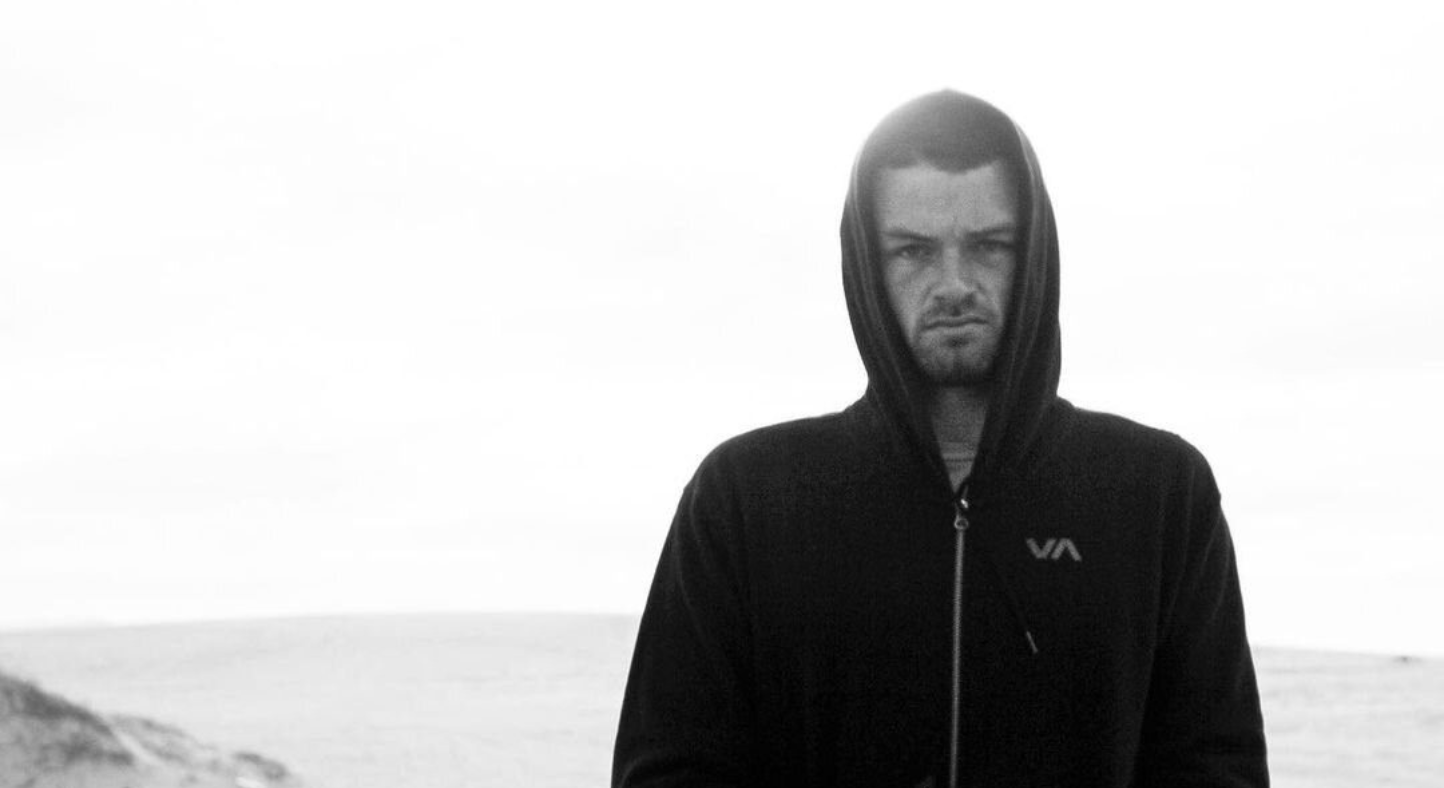Environ(mental) health
Looking after the planet is looking after yourself.

I’m not too sure precisely when, but at some point in time, rubbish became my highest priority in life.
I got so preoccupied with it that in 2019, I quit a well-paying job with no forward plan other than to begin thinking about rubbish full time. How much of it I create. How much of it I ignore. What I do when I see it. Why I accept it, etc.
Goodbye gainful employment, hello voluntary garbo.

Since then, my rubbish obsession has gained considerable traction. Pretty much the day after I unemployed myself, I went straight to the mid north coast to fully indulge in my new occupation. To binge! Hit up some remote 4×4 beaches and see how much rubbish I could pick up – just doing that and nothing else save for a surf here and there.
The experience twinkles in my memory as an unassuming yet important pilgrimage. Four weeks of quiet, critical soul clarification.
Stockton Bight is more or less the trash capital of Australia. Rubbish Mecca, a poorly communicated reality which I felt – still feel – compelled to verify. The park stretches for 35 kilometres of sandy wilderness that looks pristine from far away, but is covered in a truly appalling amount of rubbish. She’s a tough piece of coast, facing exposure to a lot of human – decades of unregulated camping, military training exercises, wild weather – all whilst adjacent to the shipping lanes.
The world’s biggest coal port is also right next door, in Newcastle. Do you remember that ship that lost a bunch of containers into the sea a few years ago. 83 to be precise? That was off the north end of Stockton Bight, and none of them were recovered. Only a few of them washed in. Slightly less than half of the containers that went overboard were identified on the ocean floor, and slightly more than half of them remain unaccounted for, leaking heaven knows what into the sea.
Spare a thought for the humpback whales trying to eat clean on their voyage north!
So anyway, that’s the neighbourhood scenery up where I wanted to spend my first few weeks of unemployed freedom, and the debris up close told me the truth. Despite the beauty of the place at a distance, the beach along Stockton remains one of the most polluted pieces of land in the country.
This thing happens every time you start picking up rubbish. After about 2 or 3 minutes, your eyes adjust, a lot like when after turning the lights out suddenly. Call it a micro-acclimation of the eyeball, or something. Suddenly you start seeing rubbish… everywhere! Little flecks of pink, and blue, and all sorts of fluorescent colours that shouldn’t exist in the sand along the tide lines. It’s a trip.
There’s quite a few strange things that go on when you pick up rubbish actually. That was the first strange thing I learnt about picking up rubbish as a full time occupation. I began watching my eyes, how long they took to adjust, and noticing how much less they were adjusting back each time.
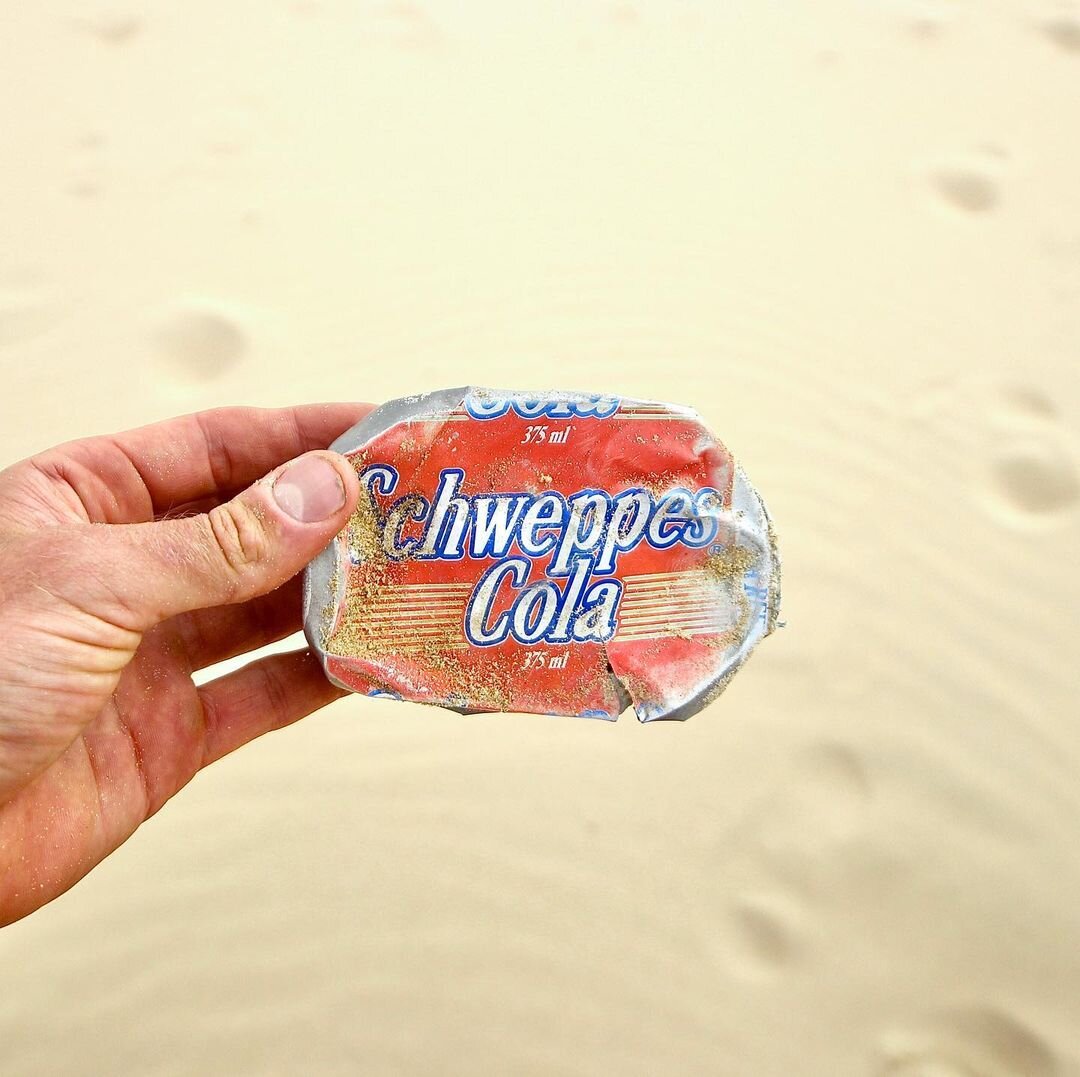
The next thing I noticed was how incredible it made me feel. Days and weeks on end, alone in the windy dunes, just filling up old coffee sacks with all sorts of forgotten shit. Sometimes it felt like I was making things worse, like when I’d try and pick up plastic so weathered that it would instantly disintegrate on contact into a million smaller pieces.
Those moments were heavy. But on the whole, picking up rubbish all by myself and all of the time was making me feel alive. Making me feel fucking awesome, in fact.
Suddenly, a month had gone by very quickly up there, and I had retrieved more than one tonne of rubbish, motivated only by this dependable euphoria waiting for me at the end of every day. Camping discards, bait bags, barbie dolls, vehicle parts, bottle caps, toilet seats. You fucking name it.
Picking up a tonne of trash by myself surprised me with how easy it was, and frightened me to think about how many other national parks in Australia must be disguised by similar natural beauty, yet thickly poisoned with pollution, like Stockton.
Reflecting on that experience, I concluded that the feeling I got when I picked up rubbish really was like a drug. And I don’t mean the illegal kind. I mean like food, or music, or a good sleep. Consuming something physical or having an experience, and the observable influence it exerts over brain and body chemistry. Meaning that this was an incredibly potent discovery for my mental health. Having been diagnosed with depression as a younger man, I’m forever on the hunt for replicable experiences that benefit my headspace. Sure enough, picking up rubbish is a profound supplement for my happiness.
The Stockton chapter, and this subsequent lesson in how best to combat my inner demons, catalysed something critical in my understanding of how to manage my mental health. It dawned on me in a lush golden glow, cuddling me like a long lost relative! Oh. Ohhhhhhhhhhhhhhhhhh. Ok. I think I get it now. So living in an environmentally mindful way isn’t just helping the planet? It’s helping my depression.
Environ – mental – health. Gotcha.
Somewhere along the way, caring about the environmental impact and caring about the mental health impact of how I was living my life had become the same thing. Whenever that glowy realisation was, I’m betting that the specific moment was when rubbish became my highest priority.
I’m 29 now, and in the many years since receiving my formal diagnosis I’ve committed to designing my whole life purely around improving my mental health. Which here was incidentally leading my whole life towards being designed around rubbish.
By the time I arrived back in Sydney, I was feeling completely electrified, the freest man on Earth, who’d discovered what seemed like a huge secret. A true epiphany had landed, at the same time as I was getting ready to scratch my itchy feet. It was time to follow through on a long held dream of driving around Australia, but using rubbish as the perfect framework for a grand tour of remote national parks.
Finally I had nothing tying me down, and it was my turn for the big lap! But rather than just being an idle tourist living the Australian Dream, I could make a point of leaving the places I visited cleaner than when I found them, places that I knew would have rubbish needing picking up. (Because literally everywhere has rubbish that needs picking up.)
But… fuck. Driving a diesel fourbie around The Lucky Country to pick up plastic and make a podcast about climate change; I could smell the irony.
It felt counterintuitive to the commitment I was making to myself – to prioritise my mental health, by prioritising the environment as best as I possibly could. So it wasn’t even just irony; I could also smell the guilt, the disturbance of my inner peace! The turmoil of fossil fuel propulsion. There had to be a better way.
There was.
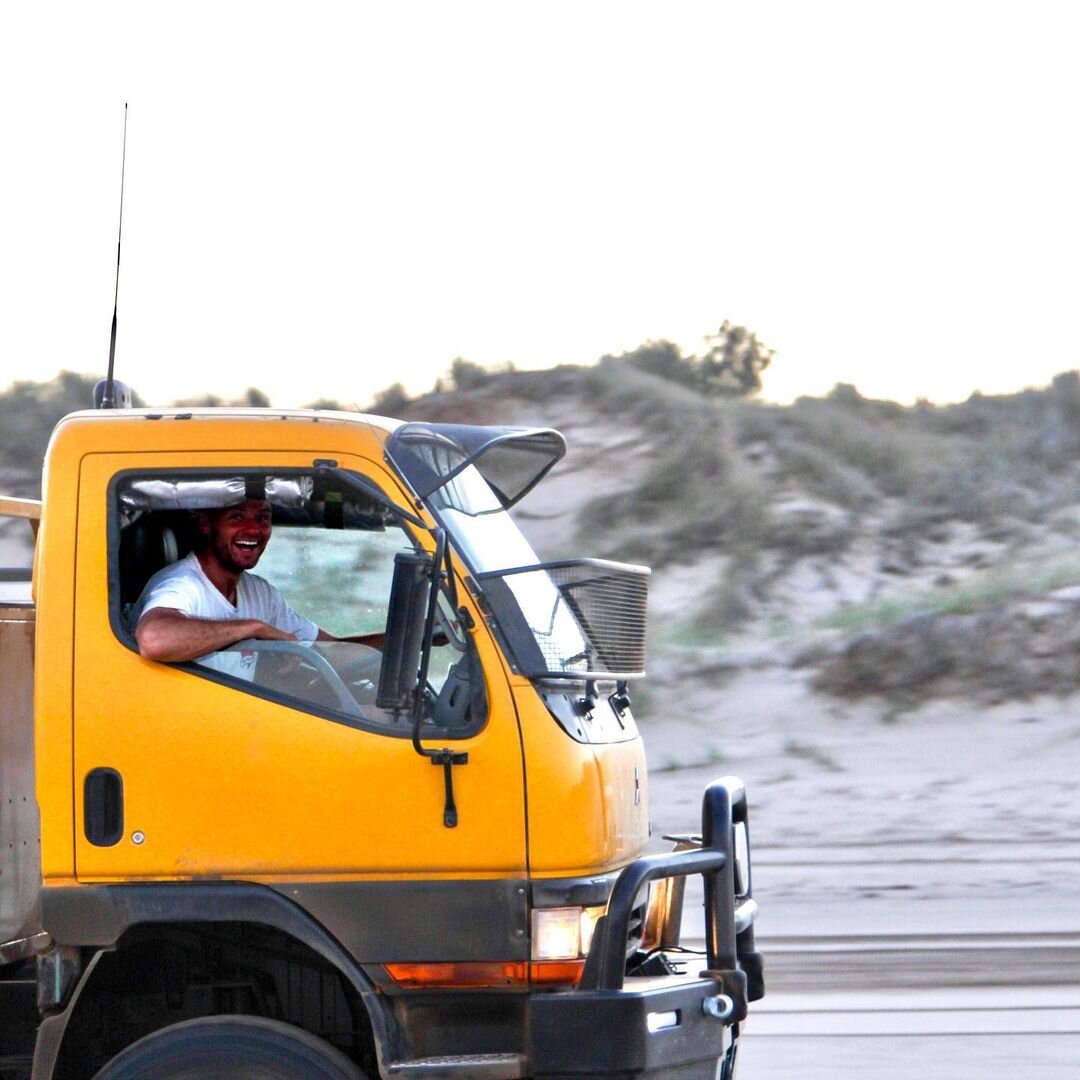
I’d heard that you could run old diesels on waste vegetable oil out of deep fryers, but I had never really looked into it for myself until that point. Running off the momentum of pulling a tonne of rubbish from Stockton dunes, the idea suddenly clicked into place. I resolved that I needed to sell my ute, pronto, and acquire a machine more ergonomic to my evolving needs. Something I could modify to roll around with a far smaller footprint, yet still have the big wheels needed to access off-grid locations in rough terrain. It also needed the capacity to haul rubbish out of there.
I first spied her late at night on an obscure used truck yard’s website, for sale in rural NSW, winking at me from my laptop screen. An immaculately preserved 90s beast that I could run on used cooking oil, in a way that I couldn’t with my current ute.
Within a week of getting home from Stockton – now happily settled in the wake of my formal resignation, and with lessons from the sand dunes still vibrating in my blood – I made the most significant impulse purchase of my life, and paid in full for an old ex-RFS 4×4 miniature firetruck to be delivered to my sharehouse. Sight unseen, and complete with original firefighting equipment.
My flash suburban neighbours didn’t love it, but I did, instantly! So I sold my old ute, and set about building the ultimate cleanup exploration vehicle, something that could travel across every terrain and that I could live out of for weeks at a time. The fundamental plan was to construct the most environmentally offensive looking machine I could, but have it running on used cooking oil and in pursuit of wilderness cleanups, and thus arguably greener and more efficient than a brand new electric car full of lithium batteries.
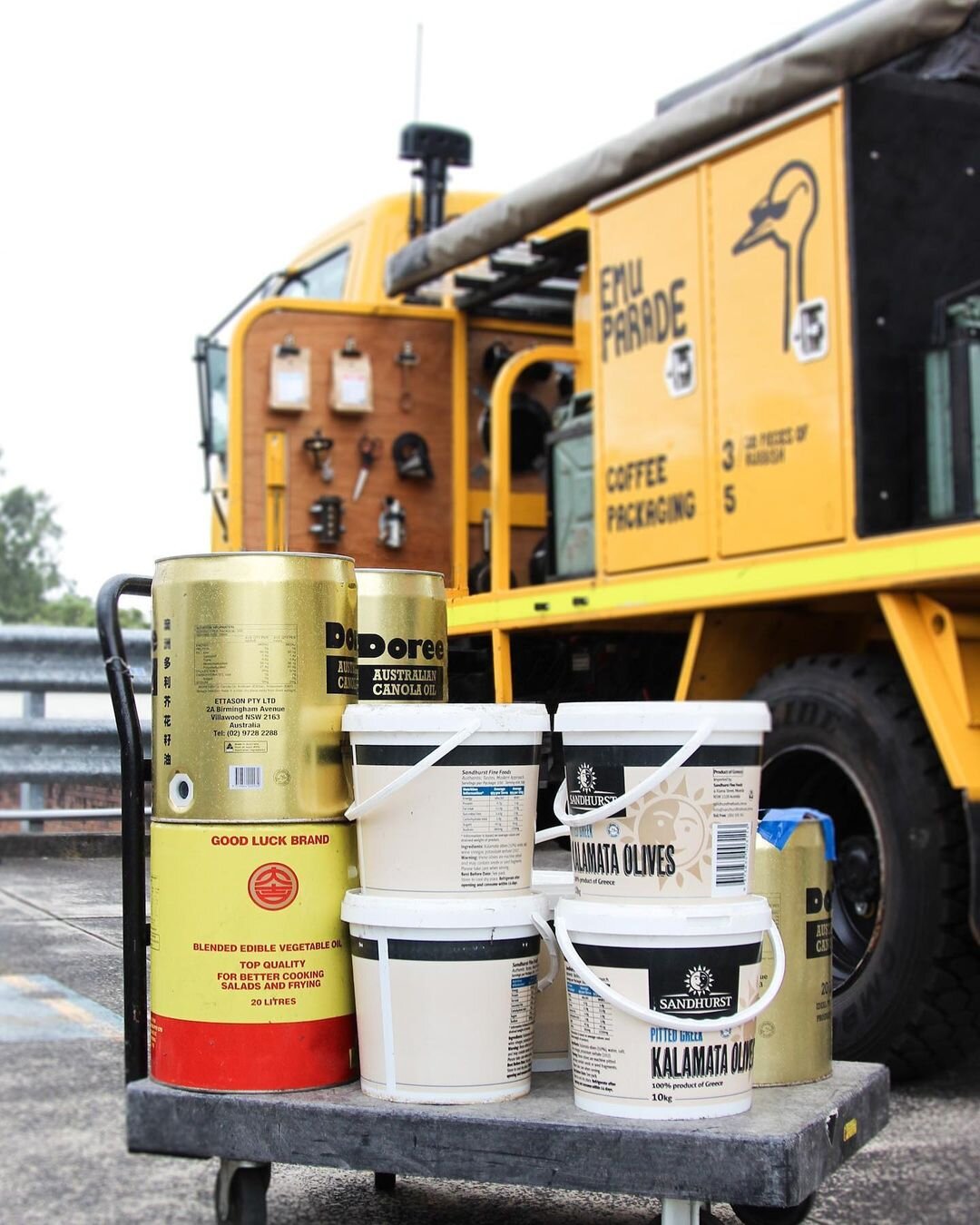
The conversion itself was a relatively simple concept. In direct-injection diesel motors – as opposed to common-rail injection diesel motors of the modern era – vegetable oil flows and combusts just like diesel, provided it’s clean and hot. I’d worked in hospitality long enough to know how ubiquitous old cooking oil is, in laneways and driveways behind cafes and restaurants and such. What a problem it can be to get rid of.
By adding another fuel tank to the firetruck and a switch valve in the fuel supply line, I could start the motor on diesel, wait a few minutes for it to heat up, then switch over to running it with filtered oil that was passing through a passive heat exchanger. Then, before parking up and switching it off again, I could purge the system with another valve, to make sure no oil was leftover in the fuel lines that would thicken up and coagulate as the truck cooled down or sat overnight. Easy enough, right?
Only one problem remained; I wasn’t a mechanic.
As you will perhaps surmise, I spent many late nights at home thereafter, combing ancient automotive forums written by grumbling old men, dissecting vast chunks of prose entirely devoid of punctuation but brimming with anecdotal vehicular wisdom. Then, with square eyes and finally the mechanical knowledge I needed, I followed through.
By this point in the planning of my cleanup journey around the lucky country, curiosity had become rabid excitement. Free, non-fossil fuel! Lying in wait to propel me on the cleanup roadtrip of a lifetime! Surely too good to be true?!
Despite some hiccups during the initial execution, vegetable oil proved to be a ludicrous cheat code for overland travel. By the time I was roadside in South Australia and throughout the Northern Territory, filtering oil out the back of lonely roadhouses, I almost couldn’t believe that no one else was doing it. Apart from the environmental credibility, it was a supremely sensible financial decision, one that I might not have arrived at if I wasn’t so preoccupied with rubbish! Put it this way – diesel pushes $2/L in the outback, and what’s more, those roadhouses all serve almost exclusively fried food.
I don’t know how to even begin summarising the eventual trip. All you need to know is that the 18 months following my Stockton pilgrimage and impulsively purchased firetruck were an utter dreamscape. The adventure of it all exceeded every one of my expectations, and did I mention the freshened exhaust? Goodbye nasty noxious diesel fumes, hello rich aromas of donut, hot chip and dim sum. Legit! Every time I hit a red light, heads would turn, spun by nostrils detecting something thoroughly delicious. Every time that happened, it made me grin that the source of it was my firetruck’s tailpipe.
It was 2019 when I bought the truck, and she had 25000kms on her. By the time I sold it in early 2021, the odometer was reading 65000. 2020 genuinely edged out 2019 as the best year of my life so far, and all during this time of pandemic pandemonium no less!
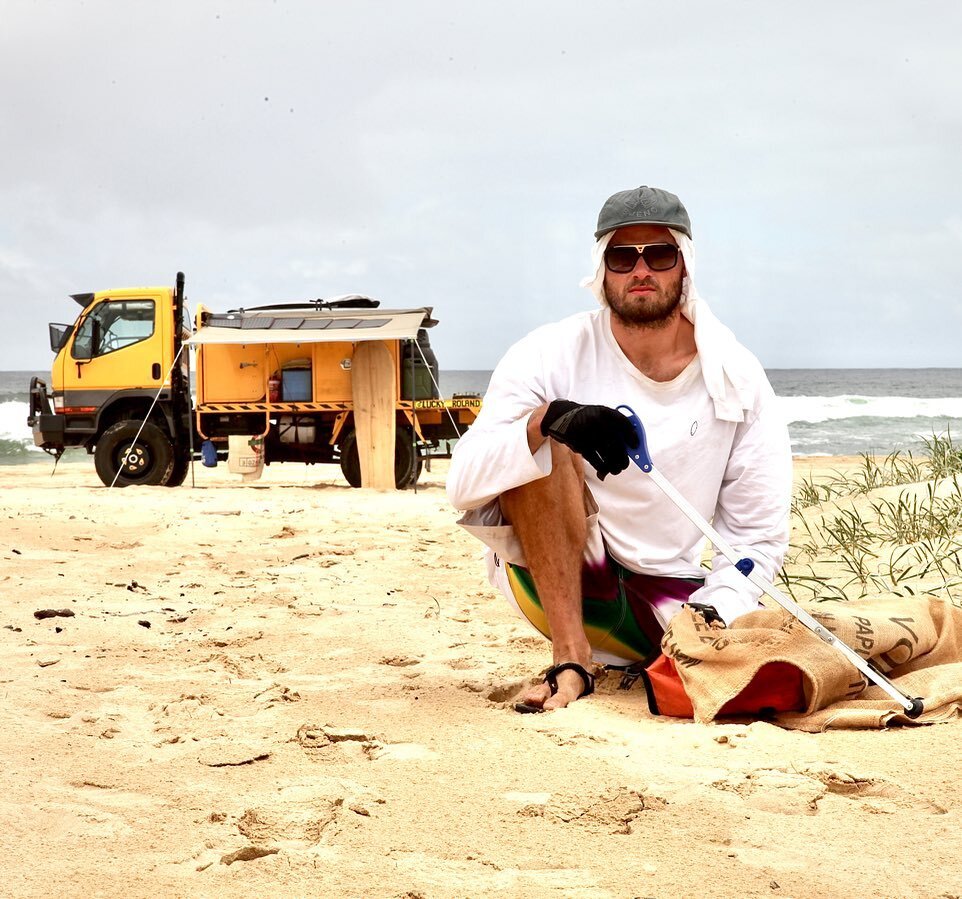
It needs saying that 2021 is an absolute banger so far, so that title may not last given the next four-wheeled project arriving to my garage door tomorrow. (I’m planning to get rid of the tailpipe altogether on this one.)
I suppose the main point I’m approaching with all of this is about my former misconception of how prohibitive a commitment to environmental consciousness would be.
If you had suggested to me that my brain would suddenly become utterly hijacked by the idea of pollution, and no future decisions would proceed unchecked by whether they help or hinder the environment, I most likely would have considered it a punitive hypothetical. Before Stockton, true conservationism probably would have sounded like a constraint on freedom – goodbye steak and v8, hello tofu and bicycle. But sitting here right now, typing this out to youse, and still feeling in my torso this undeniable summoning of purpose, I can only consider it a most divine gift. Liberation! No more decision fatigue, or wondering whether I could have spent my time more wisely!
Simplification at its most pure, finally, a soothing aloe vera balm for my consciousness’ sunburn, inflamed by the heat of constant choice and moral evaluation.
I really do feel intense gratitude for my discovery, which is why it merits expressing both here, and in every single action of my day-to-day existence.
Environ – mental – health!
Looking after the planet is looking after myself, and in that truth I stay free.

















